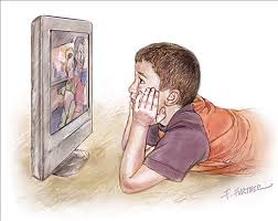 The end of a nine month school year can be very hectic for teachers and students alike. Student have group and individual projects to complete, practices and games to finish for their respective spring sports, exams (if applicable) to study for all while trying to contain their excitement about summer vacation. Teacher are trying to keep students focused as best they can, attending staff meetings, organizing student portfolios for conferences, grading papers and writing progress reports...to name a few. Students (perhaps parents as well) may not realize that teachers also look forward to a well deserved summer break. The multitude of responsibilities teachers have can easily lead to “burnout” if one doesn’t manage them well. It was roughly after my fourth year or so of teaching that I had enough experience “under my belt” to devise a plan in order to stave off “burnout” at the end of each school year. during my eighteen years as a teacher, these are five things that helped me deal with those very stressful weeks leading to the end of the school year. 1. Be realistic about your goals. Every year, teachers have goals they would like to achieve, but the reality is that sometimes all of those goals cannot be accomplished. There simply aren’t enough hours in each day in addition to having to be flexible due to special circumstances that occur every school year. As the end of the school year approaches, take a look at your plans to see what concepts are most important in helping your students transition into the next grade. Focus on them, and find ways to incorporate other concepts into those remaining days by way of unique lesson plan to keep your students interested. 2. Take a full lunch break (off campus if possible). Regardless of the duration of your lunch break, use that break in it entirety. Most likely you have been working through or taking an abbreviated lunch break for most of the year. This is the time of year when teachers need a surplus of energy to endure. Taking advantage of that entire lunch break will enable you to become re-energized for the afternoon. 3. Use a personal (Mental Health) day. I know some people frown upon taking a sick/personal day unless it is for a medical appointment, but I think it is important to have a day away from the classroom to decompress and reduce your stress level. Try to do something relaxing during your day off, and avoid thinking about work. You can think about work when you return. 4. Take care of yourself. Ideally this is something that everyone should do, but the reality is most people don’t. Getting a neck/back massage, going for a run, working out at the gym, playing tennis, meditating...all of these things will help you stay mentally and physically fresh. It may be a good idea to implement these activities throughout the school year. 5. Make the school days fun. At the end of each school year, students ability to focus in class quickly starts to wane. You can either fight it by not being flexible with respect to daily routines or you can make some changes and spice things up. Students will be completely engaged if they are doing something they think is fun. I created a Jeopardy game by using a pocket chart and flash cards. It was a great opportunity to review all of the concepts we covered during the year. I also created a Mixed Bag category that included information about pop culture and our school/classroom. You can also buy a classroom Jeopardy game from here. Another option is to create a Jeopardy game via the Jeopardy Labs website. If you have weekly scheduled computer lab time, you can have your students visit www.smart-kit.com. This website has a lot of quick thinking, logic, math, Physics, hidden objects, brain teasers, memory games and much more. Creating a brain teaser packet that your students can work on individually or in pairs is another good idea to use. Regardless of where you teach or how many students you have, there are many ways to keep yourself from burning out and waking up each morning refreshed and ready to make a positive impact on your students! Teachers please share what you do to stay refreshed and energized during and at the end of the school year.
0 Comments
For most elementary, middle and high school students, summer vacation (if their school operates on a traditional 9 month calendar) is synonymous with summer reading assignments. Depending upon the grade level, these assignments can vary in format ranging from a simple book report to in depth projects that support their curriculum including Science, Language Arts, Social Studies, and Math. It continues to be a staple of work for students to complete during their 3 months of freedom. This can be a challenge for kids that are not leisure readers as well as kids that enjoy reading. In both cases, it is not something that most students get excited about. Nevertheless it has to be done, so approaching it with a positive attitude is half of the battle.
I used to dread summer reading because it seemed like an insurmountable task (we read SO much during the school year!). Why have more reading during our “vacation”? Despite not wanting to do the reading, I felt fortunate that I had a solid three months to complete it. A piece of cake, right? Not quite. Typically many students wait until the latter part of their summer vacation to start reading (I did that a few times and suffered the consequences), but this is not the best approach. After doing nothing related to school for a couple of months, it is difficult for the average student to “flip the switch” and get into work mode. The best way to complete summer reading and its related assignments is to create a schedule (spread it out over the summer) and stick to it. It will reduce anxiety and make the work more manageable. In addition, it will help one be successful if there is a test covering the reading on the first day of school. Here are three ways students can be accountable for summer reading assignments and truly benefit from it. 1. Use a Journal (pencil/pen and paper) - Find a notebook you like and use it for writing thoughts about the reading. Composition books and 1 subject notebooks are excellent choices. Younger students may enjoy decorating a plain notebook with stickers and drawings. 2. Parents can model using a journal - If parents have a journal for their reading, use it as an example. If not, provide your child with a sample journal entry. They can write whatever comes to mind as they read, but their entries should also have some substance. Go beyond writing about main characters and major events that take place. This is accomplished by being an active reader and writing reflective responses. Active Readers ask questions prior to starting the book, identify and define unfamiliar vocabulary, make notes in the margins, make inferences and use background knowledge to help with comprehension. Here are three examples reflective responses to questions that can be asked when reading: A. What connections are there between the book and your life. Explain. B. What was the author saying about life and living through this book? C. Discuss how (character) shows his/her personality by his/her actions 7 Keys To Comprehension by Susan Zimmerman is an excellent resource describing how students can better comprehend what they read.These skills can be taught to students of all ages. 3. Use a digital journal- With readily available and often free “cloud” technology, it is easy for one to access their documents from anywhere at any time. Some great apps that are designed for note taking are Evernote, Spring Pad and Simple Note. These are excellent alternatives for students that don’t enjoy writing but like using a computer or tablet. What methods do you use to keep yourself accountable for summer reading? Leave a comment sharing your thoughts and ideas?  Setting limits on screen time is a hot topic these days. The rapid advancement of technology has caused it to become an integral part of most of our lives to varying degrees (especially young people). Doctors have acknowledged that most kids are exposed to and/or consume media for a significant part of each day (I have read that it is an average of over 7.5 hours per day) and suggest that parents “ban” electronics during mealtimes and bedtime. According to some studies, inordinate media use is directly associated with obesity, lack of sleep and under-performance in school. So how can parents reduce screen time while effectively using screen time to help their children learn? Here are six ways that may help one accomplish that goal. 1. Memory Improvement - Research has shown that specific types of video games (e.g. Minecraft) can help children who have weak/deficient working memory and executive functioning skills. The video games that require players to plan and follow through with those plans results in their decision making based upon the success or failure of their plan. 2. Motivation - Some people may feel that using screen time as a “reward”(of sorts) is a bad thing. However, it can be effectively used to motivate children that have difficulty completing school work, household chores or anything that requiring follow through. This is not for everyone. It can certainly work well if a discussion takes place and an agreement is made specifically regarding what is to be accomplished before playing with an electronic device. Also include when devices should be turned off and consequences for not abiding by those rules. Parental follow through will increase the chances of success. 3. Technology can promote friendships - If you child feels like an outsider with his classmates and peers, acquiring knowledge of the latest video games, YouTubers, movies, tv shows can be helpful in fostering relationships. with respect to youth (and adults), common interests can make one more confident when they are in social settings. 4. Television shows can model behavior - Many television shows don’t provide the best examples for behavior, but there are some that do (e.g. The Brady Bunch, Cosby Show, Gortimer Gibbon’s Life On Normal Street). When watching shows with your child, pausing the show at times can help them predict reactions of characters, think about what they would do if in a similar situation, and understand sarcastic verbal exchanges and word play (e.g. puns, Spoonerisms). Along with teaching life lessons, parents can also use shows to reinforce values they are trying to instill. It can also be a good bonding experience. 5. Establish technology free areas in your home - Despite technology being mobile, it doesn’t mean it should be used everywhere at anytime. Examples of implementing this plan are no television during meals and no mobile devices at the dinner table (helps develop conversation skills), collecting mobile devices at night before bedtime (will help kids get more sleep), no televisions/computers in bedrooms, and no fidgeting with electronics when involved in a conversation with someone (give them the courtesy of your full attention). 6. Conduct research online - Commonsensemedia.org is a great website to find reviews of movies, tv shows, apps, games, videos, websites and books. Netflix has a section of their site with appropriate content for kids that are 12 years of age and under. You can also preview any shows that you enjoy. Often times, specific episodes or parts of episodes may be good used to teach life lessons (my wife does this with our 12 year old daughter). Leave a comment regarding what screen time learning ideas work well for your family!  Many students often become disenchanted with their education and feel thwarted when their grades are not a direct reflection of the effort they put into their school work. With so much emphasis on grades and test scores, it is quite conceivable that students can become consumed with getting a “good grade” and overlook the importance and joy of learning, which often results in the success they desire. In addition, the format of a class can also have an adverse effect on a students perceived performance due to limited assessment opportunities (e.g. only a midterm and a final exam which make up a large percentage of one’s grade). Being hyper focused on grades takes away from the ultimate goal which is learning concepts and internalizing that knowledge. Having the ability to acquire, incorporate, and apply knowledge effectively are requisite skills for success in the next century. Learning is crucial to one reaching their full potential. I am certain that everyone can recall a time in their life when they enjoyed learning something. Without a doubt, that joy came from a positive and successful experience. Hence it is context bound. Students tend to focus on learning rather than grades when there is a correlation between what they are learning and how it can be useful in their lives. Consequently, they become more committed to learning. However, they should not rely solely upon their teachers. Students can play a critical role in their success. So how can students help themselves and take control of their learning? Here are four ways it can be done. 1. Develop Effective Study Habits - Create a realistic study schedule. Think about what work needs to be done and how much time you have to complete it. Also find a “study space” that is conducive to studying. This is very important due to a multitude of distractions (e.g. cell phones, computers, and televisions). In addition, know your learning style (Auditory, Visual, Kinesthetic) and use it for all subjects. 2. Ask For Help - There is no reason to ever say “I didn’t know.” There are too many resources available. The only way to obtain answers is to ask questions. Speak to the teacher before or after class or ask a friend or classmate for help (sometimes you will better understand their explanation). Use the Internet. There is a lot of basic information (e.g. unit of measurement conversions and "How To" video clips) on the Internet that is literally at one's fingertips and can be accessed almost immediately. 3. Be Organized - Create a unique system that works well for you. Have folders and binders that are clearly labeled along with a planner to write down due dates for homework, short/long term projects, and miscellaneous reminders for classes. This will prevent the loss of handouts, notes etc, and you will have easy access to them when needed. 4. Maintain A Positive Attitude - “Our attitudes control our lives. Attitudes are a secret power working twenty-four hours a day, for good or bad. It is of paramount importance that we know how to harness and control this great force.” ~Tom Blandi To succeed in doing something requires determination, effort and a positive attitude. Instead of complaining about the work and what you can’t do, think about what you CAN do, and get it done! Comments? |
AuthorRandy Sally Archives
June 2023
Categories
All
|


 RSS Feed
RSS Feed
